John stopped by The Late Late Show with James Corden a couple of days ago where he got to talk about Cowboy Bebop and his injury during filming.
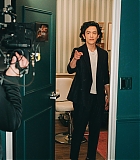
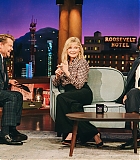
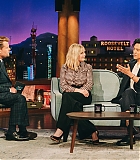
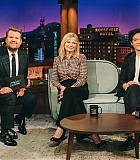
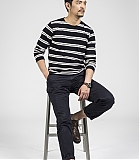

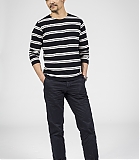

Whenever North Korea makes the news, John Cho is overcome with sadness and by what he calls a sliding-doors effect — an eerie vision of a parallel life had his parents not escaped to the South.
“I mean, there but for the grace of God go I,” he said.
The Korean War, which erupted five years after the country was divided in 1945 — the United States supporting the South, and the Soviet Union the North — was rarely discussed in front of the young Cho, who at 6 emigrated with his family to America from Seoul.
But its shadow still looms, and he leapt at the offer to narrate “Korea: The Never-Ending War,” a two-hour chronicle of Korean Peninsula history airing April 29 on PBS (check local listings).
“My life was very much changed and strangely continues to be shaped by this event,” he said. “It’s the defining experience of modern Koreans.”
“Korea” is the second part of a weirdly wonky Cho double-bill in the coming days: On April 25, he’ll play a presidential campaign strategist in “The Wunderkind,” an episode of Jordan Peele’s revival of “The Twilight Zone” on CBS All Access.
In 2016, Cho — then best known as the stoner Harold Lee in the “Harold & Kumar” comedies and Hikaru Sulu in the “Star Trek” franchise — became the unwitting beneficiary of #StarringJohnCho, a social movement that imagined Cho standing in for, say, Tom Cruise in “Mission: Impossible” and Daniel Craig in “Spectre” as part of a wider calling for diversity in entertainment, and an Asian-American leading man.
Hollywood has responded. In 2018, he became the first Asian-American actor to head a mainstream thriller in “Searching” — with a performance that A.O. Scott of The Times deemed Oscar-caliber.
More recently, Cho was tagged to helm a motley crew of bounty hunters as Spike Spiegel in “Cowboy Bebop,” the coming Netflix live-action spin on the space Western anime in which he’ll flex some martial-arts skills.
In a phone interview fresh from a training session in Los Angeles, where he lives with his wife, the actress and director Kerri Higuchi, and their two children, Cho, 46, spoke about coming to America and how Hollywood has surprised him. [More at Source]
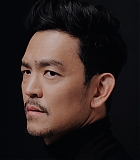
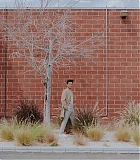
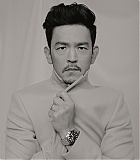

As he weaves his thoughts between different subjects — from his relationship to his race (what does Asian American mean when you’re a Korean immigrant who just wanted to fit in?) and the characters he chooses to depict on screen (which almost always leads to a larger conversation on representation) to measures of success (“The career is just something that is not a part of me; it’s something that walks next to me, it’s not me”) — one thing becomes clear: At the end of the day, Cho just wants to make good movies that allow him to stretch his creative muscles. And so it is with “Searching,” his new film.
Helmed by first-time feature director Aneesh Chaganty, the indie thriller explores the grief of David Kim, whose teenage daughter (Michelle La) goes missing following the death of his wife (Sara Sohn). The entirety of the film plays out through David’s eyes, which functions as a camera of sorts as we watch the story unfold on his computer screen.
Chaganty, a self-described John Cho fanboy, and his writing partner Sev Ohanian wrote David with Cho in mind, but it required several entreaties before the actor came around.
“[The film] was out of my comfort zone, so I said no at first,” Cho says. He’d seen “Unfriended,” really the only approximate example of a movie that takes place completely on a digital screen, and didn’t like the idea of acting for a static camera. And he definitely did not want to feel as though he were making a YouTube video. But at the same time, he did like the screenplay, if only interpreted as a more traditional picture, and was flattered most of all that the role — an explicitly Korean American one at that — was created for him.
To his credit, Chaganty doesn’t give up easy. He sent off a few nervous texts, and Cho eventually acquiesced to a meeting. “When we met face-to-face, I just really liked [Chaganty] so much,” Cho says. “He had vision and conviction and a lot of charisma, and he convinced me it would be a movie. I just had a feeling about him. So I said yes.” [Source]